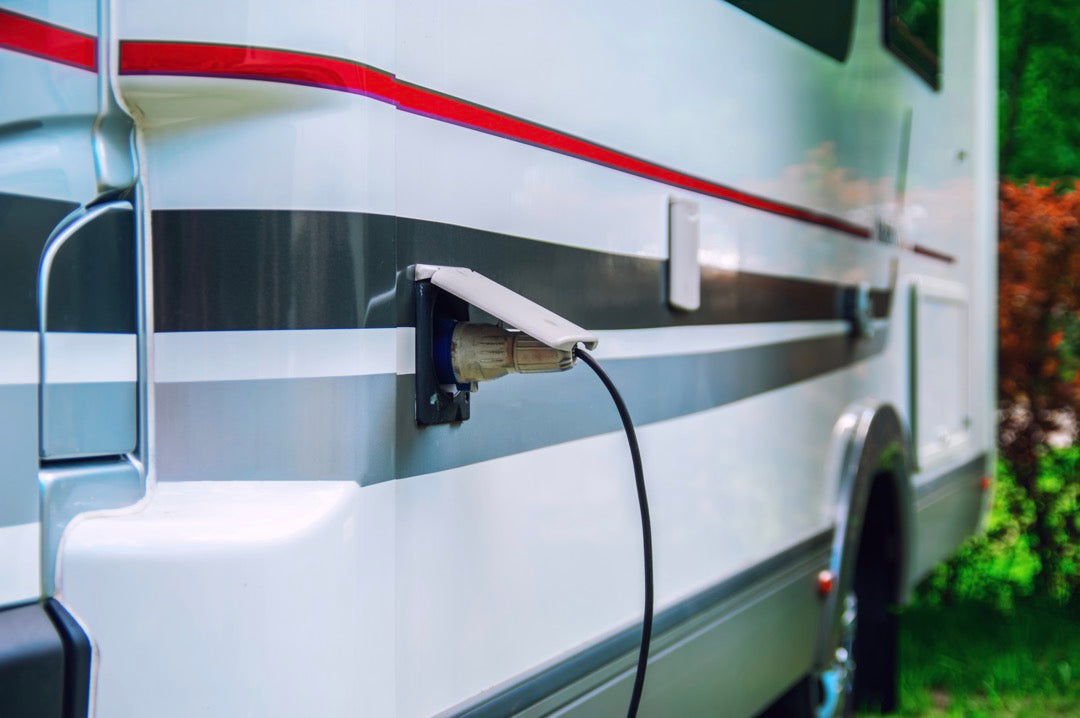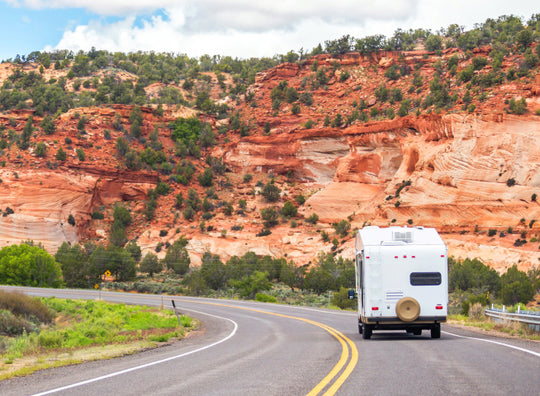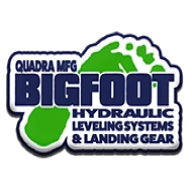Article Content
By: The Getaway Couple Jason & Rae
Winter is right around the corner which means it’s time to button up those RVs for a few months. It’s always a sad day when you have to put away your RV for the season, but it’s also very important to ensure it’s properly stored so you don’t have any surprises next camping season. You don’t want to encounter any unwelcome rodents, mechanical issues or broken pipes when you’re ready to take your RV out in the new season! You can avoid catastrophe with these latest RV winter storage tips:

1. Winterize
You will absolutely want to winterize your RV if you will be storing it in cold weather. Without proper winterization you can cause damage to your plumbing. This is a fairly simple process and most RV owners do it themselves but if you’re not comfortable doing it most dealerships offer winterization services. Check with the dealer you purchased your RV from if this isn’t a step you want to do yourself.
2. Wash Your RV
It’s a good idea to give your RV a good wash prior to storage. This will ensure dust and dirt are not sitting on the exterior for an extended period of time. While you are washing be sure to keep an eye out for any holes that you need to reseal or re-caulk. This will prevent any leaks from happening while in storage.

3. Consider Your Storage Location
You can choose to store your RV on your property (if you have the space) or in a storage facility. It’s important to consider if your RV will be outside or in an enclosed space. If you will be storing your RV outside in the elements you’ll want to invest in a good, breathable storage cover. This will protect your RV from UV rays, rain, snow, dirt, and debris. If you will be storing your RV in an enclosed space you probably won’t need a cover but we would still recommend it even if you have any exposed sides (for example, some storage lots offer “covered” storage which doesn’t necessarily mean enclosed).

4. Prevent Moisture
Moisture can accumulate inside your RV when it’s closed up for months. When there is too much moisture you can start to develop mold. Mold can ruin the interior of your RV and certain molds are even deadly. To prevent moisture we recommend using a container or two of Dri-Z-Air, Damp Rid, or silica gel. It’s also a good idea to leave your drawers and cabinets open to air them out.

5. Clean Your Refrigerator
Speaking of preventing moisture and mold, you will want to thoroughly clean out your refrigerator and freezer. Be sure to defrost your freezer and leave the doors open. You’ll want to leave a container of baking soda in the refrigerator and freezer to prevent smell and moisture.
6. Propane Tanks
If you’re storing your RV inside its safe practice to remove your propane tanks. If your RV will be stored in a well-ventilated area then you can keep your propane tanks where they are, but be sure to turn them off (again, safe practice).
7. Battery Storage
When you put your RV into storage it’s good practice to do so with fully charged batteries. A discharged battery will freeze much quicker than a fully charged battery. Best practice would be to remove your batteries if you know they will most likely freeze. If you’re able too, you’ll want to plug your RV into shore power once a month to keep the batteries topped off (eight hours each time should do it).

8. Tires
You’ll want to protect your tires from the elements with tire covers. If you plan on storing your RV on soft earth, we highly recommend using SnapPads to prevent sinking as well. You will also want to inflate all of the tires to the pressure indicated on the sidewalls.

9. Motorized RVs
If you RV is motorized there are a few additional steps you’ll want to take to ensure proper winter storage. Don’t forget to check off these items:
- Check engine oil prior to storage
- Top off all fluids
- Fill the fuel tank and add fuel stabilizer
10. Electrical
We mentioned removing your batteries or topping them off monthly but it’s also important to turn off your main breaker. You won’t need electrical during storage so it’s another safety precaution to turn the breaker off. Additionally, you’ll want to remove any batteries from your smoke alarms, CO2 detectors, clocks, etc.
11. Pest Prevention
You’ll want to make sure pests ranging from insects to rodents stay out of your RV during storage. The first step is to remove all food from the RV and thoroughly wipe down all cupboards. Rodents can smell even the slightest hint of food! You’ll want to seal up any holes with steel wool to prevent critters from getting in. For additional protection you can place ant and rodent traps in or around the RV. Just be sure to check them regularly!

12. Interior
To keep your interior in good shape you should close your windows and blinds to prevent sun exposure. This will prevent fading of your furniture, carpet and blinds. If your RV will be covered or inside you can crack your overhead vents to allow for some ventilation.

13. Leveler & Jack Protection
We highly recommend protecting your jacks with SnapPads. When parking permanently over many months it is advisable to cycle your system by retracting and extending your levelers about once a month. This periodic retraction is good for the jacks and is particularly beneficial for keeping your SnapPads in excellent condition. Under normal circumstances, you can park long-term with no issues. However, should you experience excessive rain it can cause the softer surfaces like sand, grass, and gravel to absorb the water and shift or move slightly along with the hydraulic jack feet which continue to attempt to keep you level. Putting another leveling pad under the SnapPad on these types of terrain may help provide additional protection along with a harder surface while parked.

Those are our 13 RV winter storage tips that will help you avoid catastrophe this year! You never know what could happen during storage so it’s a good idea to check up on things. You can confirm no pests have gotten in and that your moisture levels have stayed low. Be sure to sniff around for any unusual smells and check enclosed areas for nests of any kind. Checking in on your RV will let you know if any action should be taken or if all is well. We hope you find these tips useful and we wish you future happy camping!









